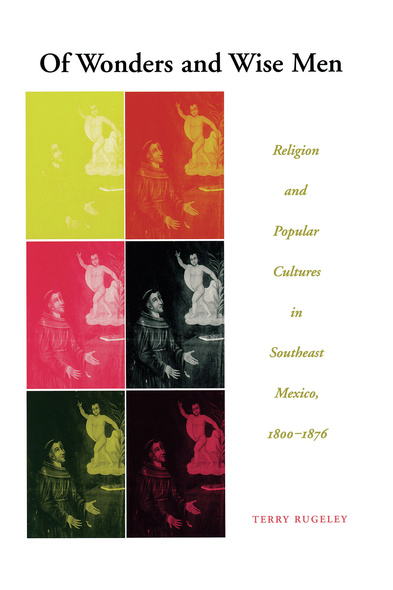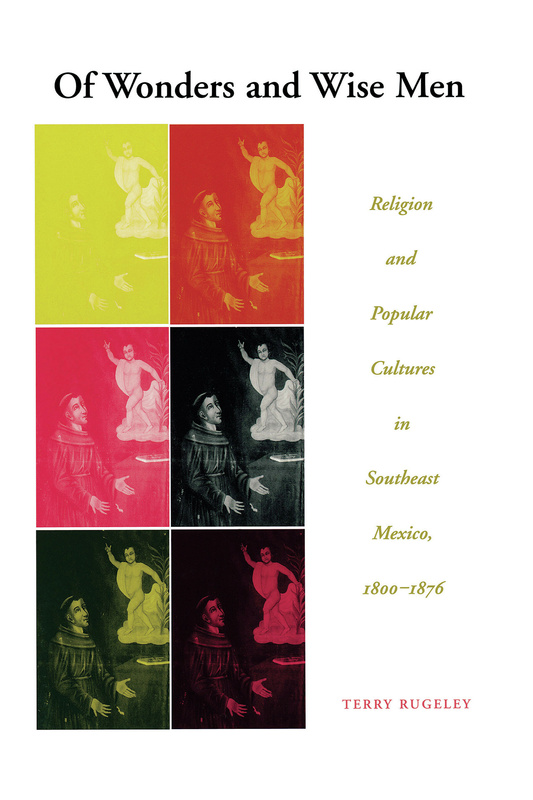Our shopping cart is currently down. To place an order, please contact our distributor, UTP Distribution, directly at utpbooks@utpress.utoronto.ca.
Of Wonders and Wise Men
Religion and Popular Cultures in Southeast Mexico, 1800-1876
2004 – Harvey L. Johnson Award – Southwest Council of Latin American Studies
In the tumultuous decades following Mexico's independence from Spain, religion provided a unifying force among the Mexican people, who otherwise varied greatly in ethnicity and socioeconomic status. Accordingly, religion and the popular cultures surrounding it form the lens through which Terry Rugeley focuses this cultural history of southeast Mexico from independence (1821) to the rise of the dictator Porfirio Díaz in 1876.
Drawing on a wealth of previously unused archival material, Rugeley vividly reconstructs the folklore, beliefs, attitudes, and cultural practices of the Maya and Hispanic peoples of the Yucatán. In engagingly written chapters, he explores folklore and folk wisdom, urban piety, iconography, and anticlericalism. Interspersed among the chapters are detailed portraits of individual people, places, and institutions, that, with the archival evidence, offer a full and fascinating history of the outlooks, entertainments, and daily lives of the inhabitants of southeast Mexico in the nineteenth century. Rugeley also links this rich local history with larger events to show how macro changes in Mexico affected ordinary people.
This is a major new work on nineteenth-century Mexico that contributes to our understanding of popular religion, the nature of political conservatism, and the nature of local politics.... It represents the most innovative and creative scholarship now being undertaken in Mexican history...and will be widely used in classes and discussed by scholars.
- Acknowledgments
- A Note on Orthography
- Introduction: Strange Lights, Mysterious Crosses, and the Word of God Denied
- Chapter 1: Geography, Misery, Agency, Remedy: The Unwritten Almanac of Folk Knowledge
- Chapter 2: Rural Curas and the Erosion of Mexican Conservatism: The Life of Raymundo Pérez
- Chapter 3: The Bourgeois Spiritual Path: A History of Urban Piety
- Chapter 4: Spiritual Power, Worldly Possession: A History of Imágenes
- Chapter 5: Official Cult and Peasant Protocol: Rural Cofradías and the History of San Antonio Xocneceh
- Chapter 6: A Culture of Conflict: Anticlericalism, Parish Problems, and Alternative Beliefs
- Chapter 7: "Burning the Torch of Revolution": Religion, Nationalism, and the Loss of the Petén
- Conclusion: The Motives for Miracle
- Notes
- Glossary
- Bibliography
- Index





